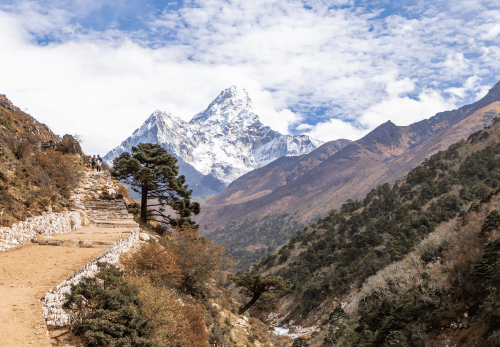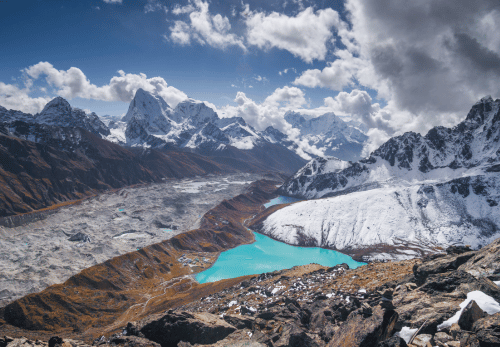About Trip
The Everest Three Passes Trek is an extraordinary adventure in the Everest region of Nepal, renowned for its breathtaking landscapes and challenging terrain. This trek offers a comprehensive experience of the Himalayas, crossing three high mountain passes Kongma La, Cho La, and Renjo La each providing trekkers with unparalleled views and a sense of accomplishment. The journey traverses remote valleys, pristine lakes, and majestic glaciers, ensuring an immersive encounter with the natural grandeur of the Everest region.
Starting from the vibrant town of Lukla, the trek follows the well-trodden path along the Dudh Koshi River, passing through bustling Sherpa villages such as Namche Bazaar, Tengboche, and Dingboche. Trekkers will have the opportunity to experience the unique culture and traditions of the Sherpa people, visiting ancient monasteries and enjoying their warm hospitality. The trail ascends gradually, allowing ample time for acclimatization and minimizing the risk of altitude sickness.
The highlight of the Everest Three Passes Trek is crossing the high passes, each presenting its own unique challenges and rewards. Kongma La Pass (5,535m) offers stunning views of the Khumbu Glacier and surrounding peaks. Cho La Pass (5,420m) is a technical climb with spectacular vistas of the Ngozumpa Glacier. Renjo La Pass (5,360m) provides a panoramic view of the Gokyo Lakes and the Everest range. In addition to these passes, trekkers will visit iconic destinations like Everest Base Camp and the summit of Kala Patthar, where they can witness the awe-inspiring sight of Mount Everest up close.
The Everest Three Passes Trek is a perfect blend of adventure, natural beauty, and cultural exploration. It is an ideal choice for experienced trekkers seeking a challenging and rewarding journey through one of the most stunning regions on Earth.



